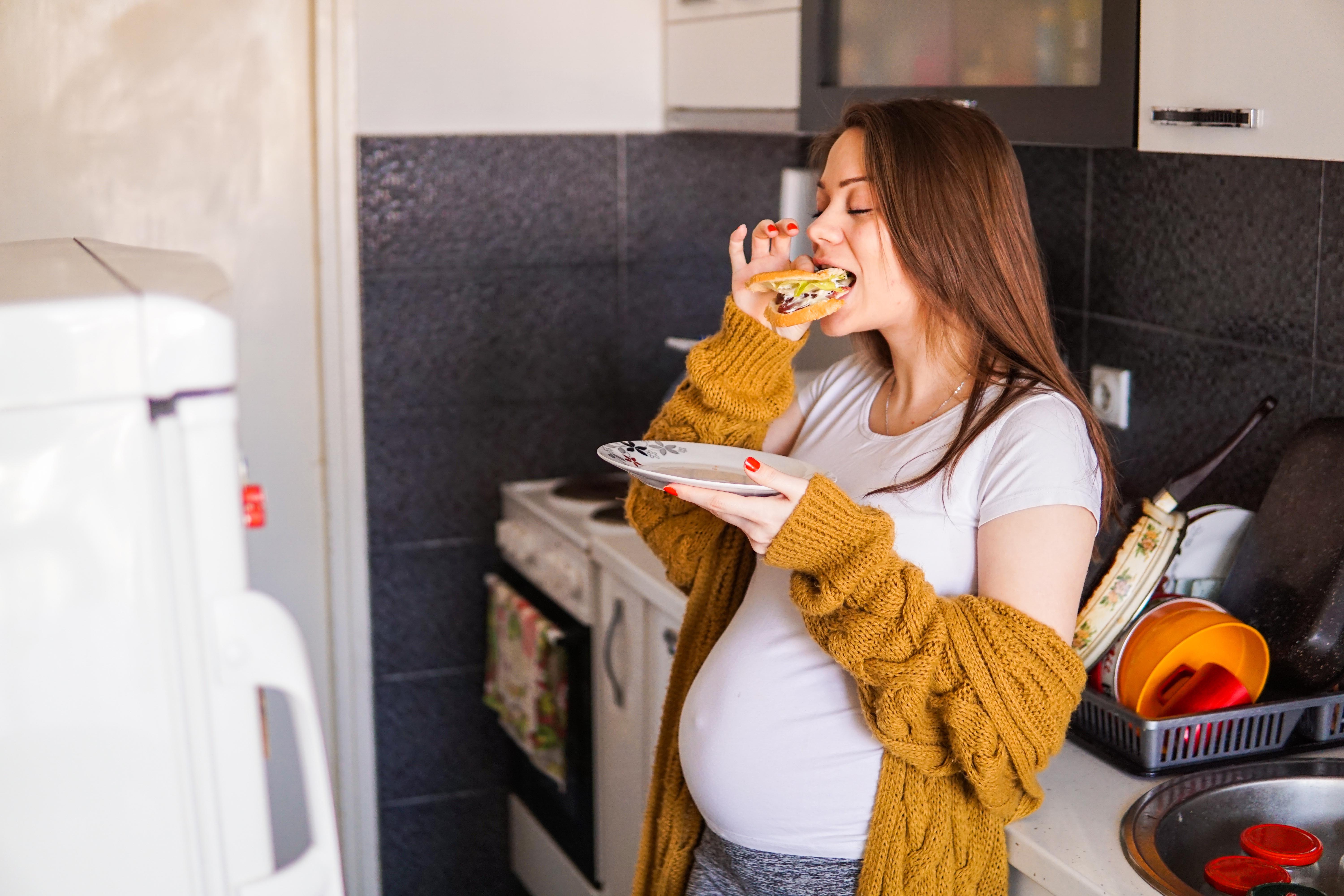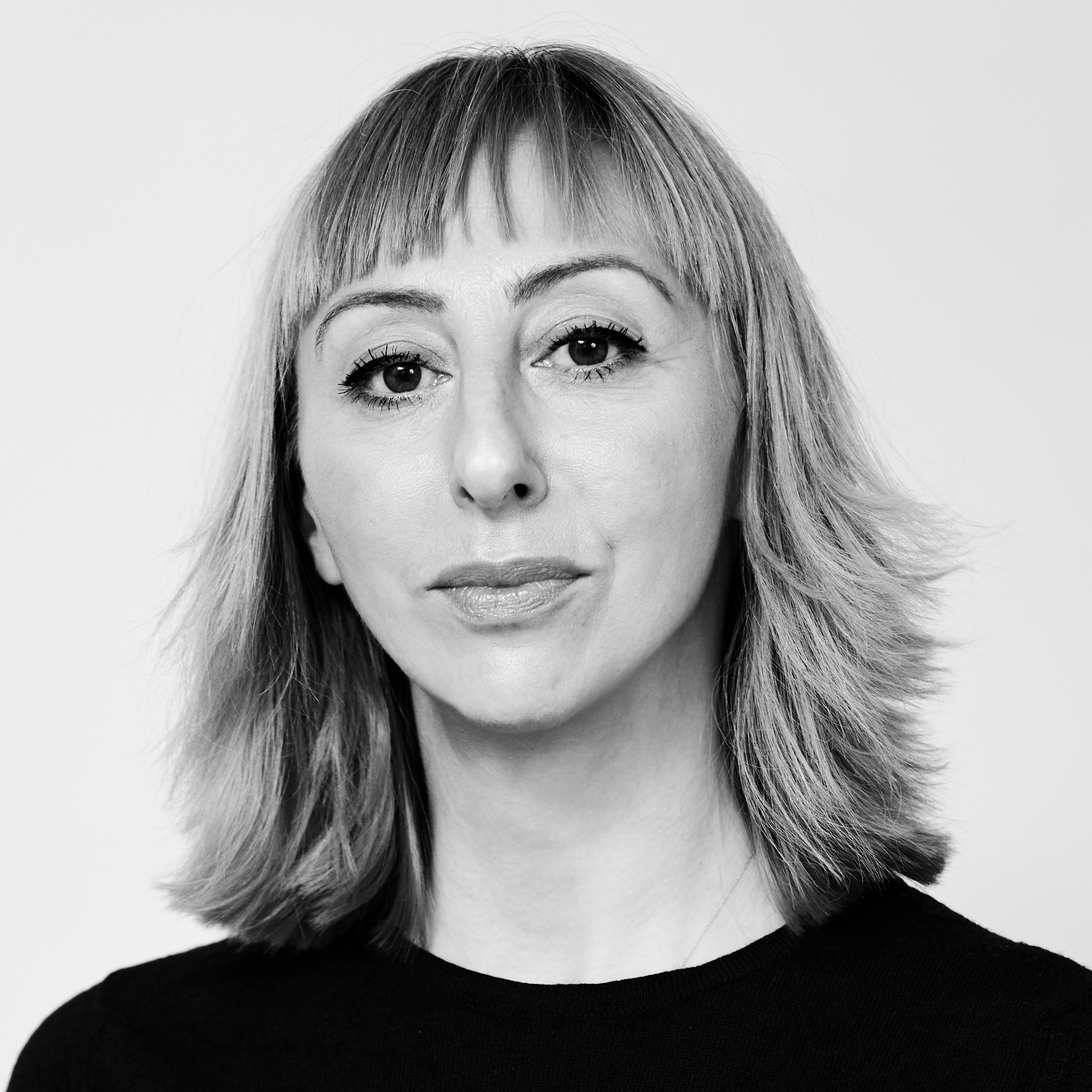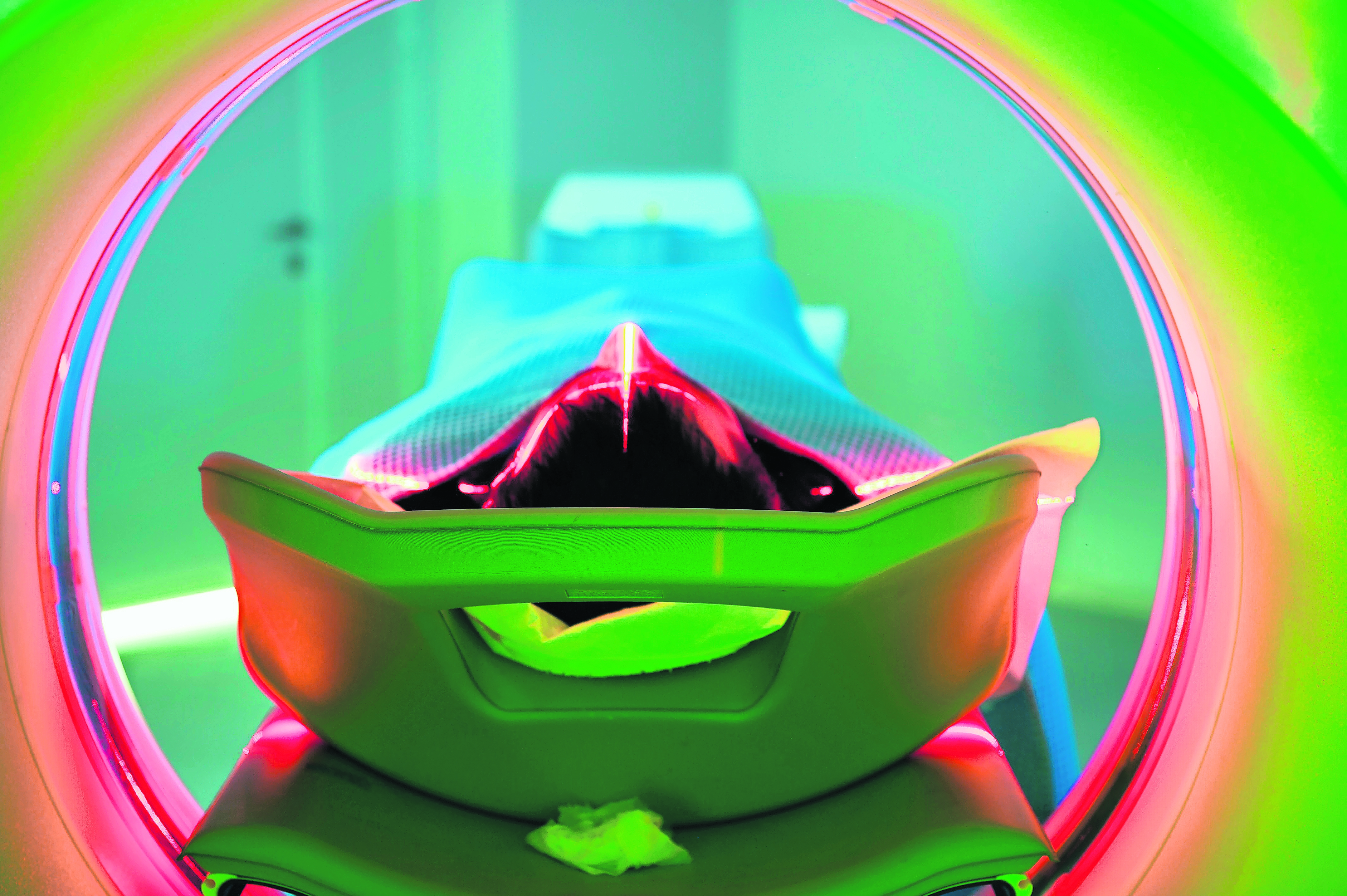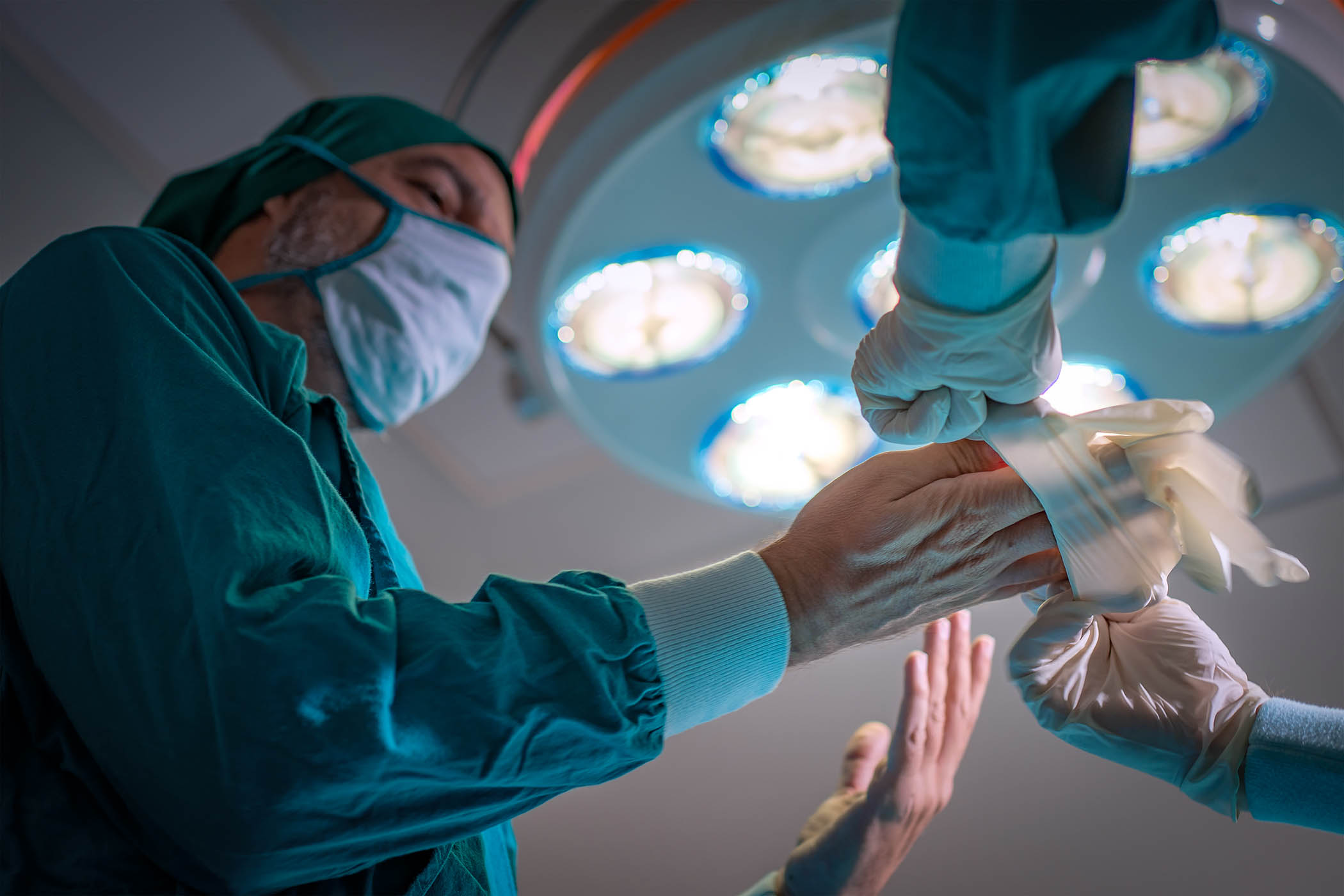Eleven years ago this week, I was advised to take to my bed. Which, even then, seemed retro. My pregnancy was “complicated” or one of those other words you see on doctors’ letters that describe you lightly as a “pleasant woman” – the pregnancy was “rotten” perhaps, “horrid”. One of the issues the consultants kept returning to, when I waddled through their rooms and settled myself on their brisk sheet of tablecloth, was my weight. The baby was too small so my bump was too small, and while some of the doctors focused simply on measurements and scans (oh I’m nostalgic now, thinking of my daughter as a ghostly imperilled foetus rather than this eye-rolling girl obsessed with Labubus), other medical professionals congratulated me on staying so thin.
I knew this was weird. Of course I knew it was at best weird to compliment a pregnant woman whose baby wasn’t growing properly on her relative svelteness, at worst a gross misunderstanding of the work, the body, the risk, the world at large. And I’m thinking about it again now, not just because my daughter’s birthday has rolled around, but because of a new briefing paper, Diet in Pregnancy, published by the British Nutrition Foundation and intended as “a roadmap for good nutrition for parents and their babies”. “It identifies inconsistencies in nutritional advice received by women” and “calls for clear, consistent and culturally appropriate guidance from healthcare professionals to optimise maternal and public health.” Pregnant women do not need to “eat for two”, they should not eat liver, or have more than 200mg of caffeine a day, but they should have a balanced diet supplemented with specific nutrients such as folic acid and vitamin D.
All of which makes perfect, sensible sense. But, in the same way that medical advice around breastfeeding only has an impact if it takes into account the woman when she leaves hospital, the woman in the world, complete with shames and pains and people looking, those relaying nutritional advice should also take into account body image. Every pregnant woman wants to eat properly, to enjoy a balanced “rainbow diet” – what’s stopping them is rarely a lack of information, but is more likely related to the many years of chaotic eating they’ve normalised as part of living in a culture that privileges thinness and control.
It’s weird at best to compliment a pregnant woman, whose baby isn’t growing properly, on her relative svelteness
It’s weird at best to compliment a pregnant woman, whose baby isn’t growing properly, on her relative svelteness
Pregnant women are being told to relax, indulge and eat healthily, but they’re being shown they should restrict their diets to avoid remaining fat once the baby is born. The two realities are hard to reconcile, especially in a body that has been shaped by similar opposing pressures, and one where the outline of a baby’s heel is visible after lunch.
When you’re pregnant your body changes – as well as the shape of it, the texture, the movement, the experience of living within it – and these changes can cause a kind of internal schism. After being managed and controlled since adolescence, this is a body in rebellion. When pregnant and feeling bad about the way you look, whether that’s too fat and unwieldy or too thin and therefore already a bad mother, some women lean towards unhealthy behaviours that clean medical advice rarely accommodates. Sure, you know your body is meant to change, but anxiety about this change rings its familiar bell at the base of your skull, and even though you’ve read the leaflets and know the nutritional guidelines, you reach for coping strategies, like restrictive dieting or compulsive eating, even when they might impact the baby. Because you’re still you. Which, I guess, is a whole other problem.
For all the expectations a pregnant woman might suddenly appreciate her body for its strength and creative abilities, the reality is that grim beauty standards remain. When a nurse complimented me all those years ago for putting on so little weight during pregnancy, the terrible thing was, even though I knew she was wrong to do so, I felt a fleeting pride! I said thank you! I was pleased to be perceived as thin (feminine, hard-working, healthy, valuable, etc), at the same time as knowing that this thinness was a sign that something was wrong.
Early one Sunday morning I had the baby – she was tiny but fine – and a week later I stumbled home from hospital into motherhood and a diet of guilt and biscuits. I knew what I was meant to be eating, it was just… the kitchen was all the way over there and the baby was finally asleep on my lap. The NHS postpartum diet advice focuses on fresh fruit and vegetables, but many new mothers’ diets instead focus either on simple survival or on how to retrieve their old body, a search that includes but is not limited to scouring tabloid pictures of celebrity “baby weight transformations” and “buggy bootcamps”.
Maybe it goes without saying that, with “most pregnant women” failing to meet the UK-recommended intakes of folate and iron, nutritional guidelines are important. But perhaps they arrive too late for those whose relationship with disordered eating has been established for decades. I’m becoming increasingly aware that, more urgent than a lesson in what to eat, is a lesson in how.
Related articles:
And another thing: pub reading, cutesy coffee and a twisted comedy
Last orders My second favourite magazine, The Fence, is publishing a book about, ‘Going to the pub, being at the pub, the general concept and vibe of a pub’ – it is to be called The Pub. There are stories and there’s advice and a pub bingo game and reviews of urinals in ‘a love letter to the great British pub, in all its faded and eccentric glory,’ and you can preorder it online now.
Caffeine hit I’m quite taken by Grind’s new Peanuts collaboration, particularly the colour-blocked cafetière that comes in a natty little carrying case with a pair of enamel Snoopy mugs and a dinky pack of coffee, intended for a caffeine-based picnic for two. The romance implied by a cool bag with space for only two cups of coffee, drunk on the grass from whimsical cups? I appreciate the whole intention and applaud the little lazy dog.
Newsletters
Choose the newsletters you want to receive
View more
For information about how The Observer protects your data, read our Privacy Policy
Laughter in the dark Season two of Such Brave Girls is on iPlayer now. (If you haven’t yet indulged, start immediately.) The new series of this dark and feral comedy, in which Louise Brealey plays the bitter mother of two unhinged sisters (Kat Sadler and Lizzie Davidson), begins with a forced wedding and gets bleaker and funnier from there. I hooted throughout, hoots punctuated only with the odd gasp. Glee. Glee!
Photograph by Getty Images



